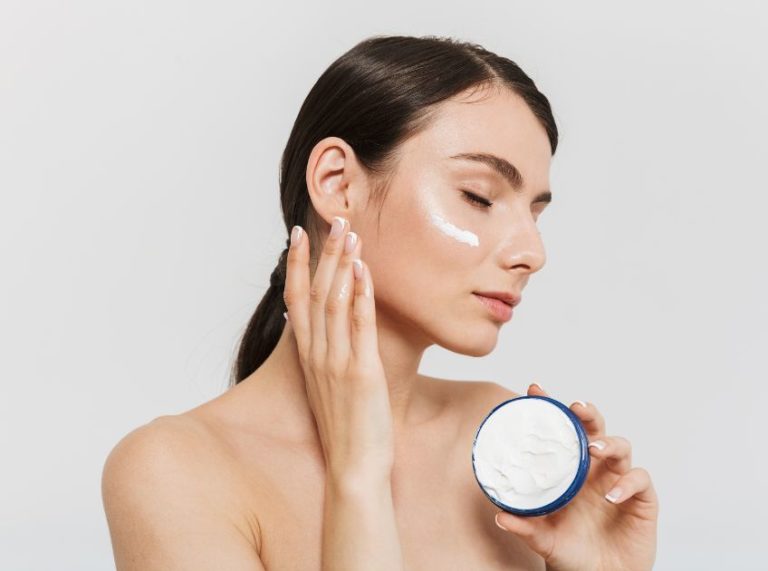
Important: This article is for informational purposes only. Please read our full disclaimer for more details.
Saltwater isn’t just for the beach—it’s a surprisingly effective skincare ingredient that many overlook. From exfoliating to healing, the benefits of saltwater are as deep as the ocean itself. In this guide, we’ll explore why saltwater can be a great addition to your skincare routine and provide practical tips for making the most of its powers.
1. The Science Behind Saltwater’s Skin Benefits
Saltwater isn’t just a nice way to relax by the sea; it’s packed with skin benefits that can help you achieve smoother, healthier skin. Here’s why:
Exfoliation: Nature’s Scrub
Saltwater acts as a natural exfoliant. When you soak in it or use it topically, the tiny salt crystals help slough off dead skin cells, promoting a fresh, glowing complexion. This exfoliation is gentle yet effective, making it a great option for those with sensitive skin compared to harsher chemical exfoliants.
Antimicrobial Properties: Fighting Skin Bacteria
Saltwater’s antibacterial properties help fight bacteria that can lead to acne and other skin issues. Research shows that salt can reduce the number of harmful bacteria on your skin, making it a natural solution for preventing breakouts.
Mineral-Rich: A Hydrating Boost
Seawater contains vital minerals like magnesium, potassium, and calcium. These minerals hydrate, soothe, and nourish your skin. Magnesium, for example, has been shown to support the skin barrier, locking in moisture and preventing dryness.
Improved Circulation: A Healthy Glow
Soaking in saltwater can improve blood circulation, helping oxygen and nutrients reach your skin more efficiently. The result? A radiant, healthy glow that comes from within. Research suggests that increased circulation can even speed up the skin’s healing process, making saltwater a powerful ally for those with sensitive or inflamed skin.
2. How to Incorporate Saltwater into Your Skincare Routine
Wondering how to reap the benefits of saltwater for your skin? Here are several simple ways to add it to your regimen.
Ocean Soaks or Salt Baths
If you live near the ocean, lucky you! A regular swim or soak in the sea is an easy way to experience the benefits of saltwater. But don’t worry if you’re landlocked—adding Epsom salts to your bath can provide a similar effect. Simply dissolve 1-2 cups of Epsom salts in warm water and soak for 20 minutes for a relaxing, skin-rejuvenating experience.
DIY Salt Scrub
Want to exfoliate at home? Mix sea salt with a moisturizing oil like coconut or olive oil to create your own scrub. Massage it gently into your skin in circular motions, paying special attention to rough spots like elbows and knees. This scrub not only exfoliates but also moisturizes your skin at the same time.
Step-by-Step Salt Scrub:
- In a small bowl, mix ½ cup sea salt with ¼ cup olive oil (or your preferred carrier oil).
- Add a few drops of essential oils like lavender or eucalyptus for a soothing scent.
- Gently massage the mixture onto your skin in circular motions, avoiding broken or irritated skin.
- Rinse off with warm water and apply a moisturizer to lock in hydration.
Saltwater Facial Rinse
For a quick and easy cleanse, mix 1 teaspoon of sea salt with 1 cup of warm water. Use this solution to rinse your face after your regular cleansing routine. This simple rinse helps tone your skin, reduce excess oil, and even fight acne-causing bacteria.
3. Precautions and Considerations
While saltwater can work wonders for your skin, there are a few things to keep in mind to avoid irritation.
Sensitive Skin Considerations
If you have sensitive skin, it’s important to take it slow with saltwater. Always patch-test a small amount on your inner forearm before using it more extensively. If you notice any redness or irritation, skip the treatment or dilute the saltwater with more water.
Signs of Irritation to Watch For:
- Redness or rash
- Dryness or tightness
- Itching or burning sensation
If any of these symptoms occur, discontinue use and consult a dermatologist for further guidance.
Hydration: Keep Your Skin Moisturized
Saltwater can be drying, especially if you overdo it. After soaking or using a salt scrub, always follow up with a rich moisturizer to replenish the moisture lost during the process. Look for products that contain hydrating ingredients like hyaluronic acid, aloe vera, or shea butter.
4. Extra Tips for Saltwater Skincare
Want to maximize the benefits of saltwater? Here are a few extra tips to help you get the most out of your skincare routine.
- Best Time to Use Saltwater: For optimal results, use saltwater treatments in the evening, when your skin has time to recover overnight. Avoid saltwater exposure right before sun exposure, as it can make your skin more sensitive.
- Frequency: For most people, 1-2 times a week is enough. Overuse can lead to dryness, so it’s important to balance saltwater treatments with plenty of hydration.
- Complementary Products: Consider pairing saltwater treatments with soothing skincare products like aloe vera gel, calming serums, or a rich night cream.
Conclusion: Embrace the Sea for Healthy Skin
Saltwater is more than just a relaxing part of a beach vacation; it can be a powerful ally in your skincare routine. From exfoliating to boosting circulation, the benefits are undeniable. By incorporating saltwater into your skincare routine—whether through ocean soaks, DIY scrubs, or face rinses—you can unlock a radiant, healthier complexion. Just remember to hydrate and listen to your skin’s needs to enjoy the full benefits without the downsides.
Note: Always consult a dermatologist if you have specific skin concerns or conditions. Saltwater isn’t a cure-all, but when used correctly, it can be a valuable tool in your skincare arsenal.
















